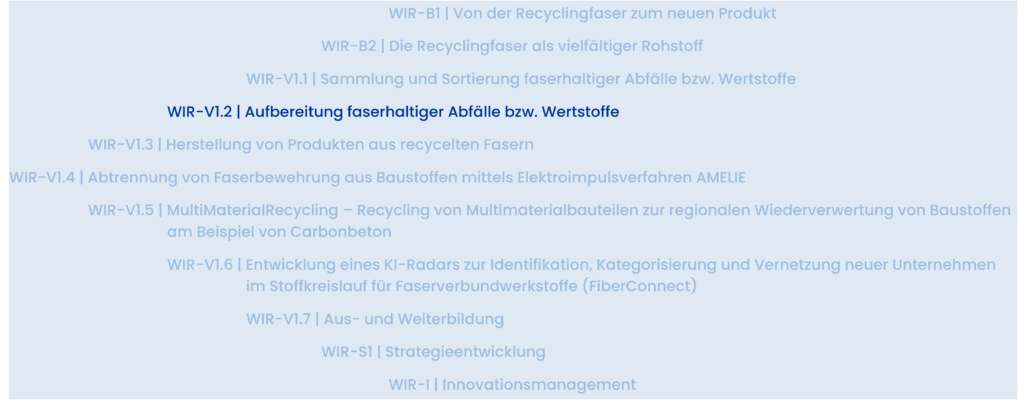WIR-V1.2 | Processing of fibrous waste or recyclable materials (approval still pending)
Objective
The joint project WIR-V1.2 aims at the practical implementation of high-quality processing of fibrous waste. The realisation takes place through the conception, construction and commissioning of a portable, modular processing plant. Transferring the results into practice also includes ensuring adaptation to the application of different products and analysing and discussing missing regulations and approvals. WIR-V1.2 thus makes an essential contribution to the consolidation of the processes which make the processing of fibrous waste or recyclable materials possible in the region “Elbtal Sachsen”.
Objective 1 – Design of a portable and modular processing plant: Design of a functional, flexibly adaptable processing plant for recyclable materials containing fibres as an effective impulse for closing the material cycle of fibre composites in the region “Elbtal Sachsen”. For this purpose, specifications must be drawn up taking WIR-V1.1 and WIR-V1.3 into account and included in the conception.
Objective 2 – Construction and commissioning of the processing plant: Processing is carried out with Technology Readiness Level 7 (TRL 7) – currently open to technology – via pyrolysis or solvolysis or equivalent processes. Processing with the removal of the matrix with the addition of thermal energy (pyrolysis) or the use of solvents, supercritical water (solvolysis) etc. is decisive for the type, form and quality in which the RC fibres are available and can be processed. The plant is to be set up in the region and process fibre waste from practice and the WIRreFa project.
Objective 3 – Adaptation of the processing plant for the product application fields: The objective is the high-quality processing of fibre waste (cf. metal recycling). As an interface between WIR-V1.1 and WIR-V1.3, the plant is to be controlled automatically by an AI-supported, cloud-based process management tool (BPM system), taking into account quantity and requirements from RC product manufacturing and RC raw material quality. The transfer interfaces are essential, as data must be generated and plant parameters defined. For this purpose, the benchmarking of recycled fibres is carried out according to treatment processes for mechanical performance (elastic modulus, strength, geometry), chemical/physical surface analysis (residues etc.) and microscopic analysis (fibre attack etc.). This is followed by the investigation of processability in established processes and the benchmarking against virgin continuous fibres.
Objective 4 – Stakeholder management and policy setting: The results are to be transferred into practice, processes are to be consolidated and existing isolated solutions are to be brought together. Furthermore, missing regulations, approvals, strategic networking and the economic efficiency of the processes are to be analysed and discussed. The involvement of all relevant stakeholders should support this.
Partners involved
Leibniz-Institut für Polymerforschung Dresden e. V.
Nehlsen Sachsen GmbH & Co. KG
Nordmineral Recycling GmbH & Co. KG
Technische Universität Dresden – Institut für Baubetriebswesen
Technische Universität Freiberg – Institut für Aufbereitungsmaschinen und Recyclingtechnik
Coordination
Technische Universität Dresden – Institut für Baubetriebswesen
Technische Universität Freiberg – Institut für Aufbereitungsmaschinen und Recyclingtechnik
Run-time
Approval by the advisory board has been granted, approval by PTJ is still pending.

